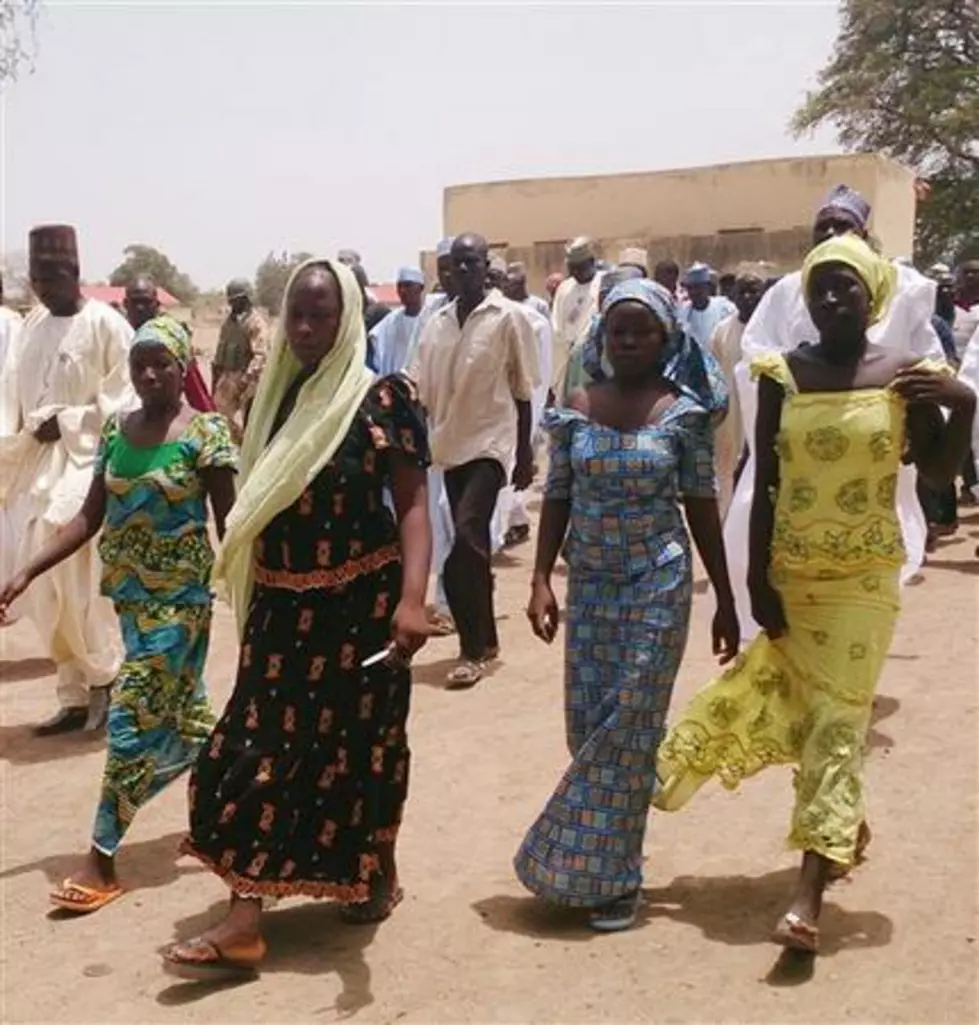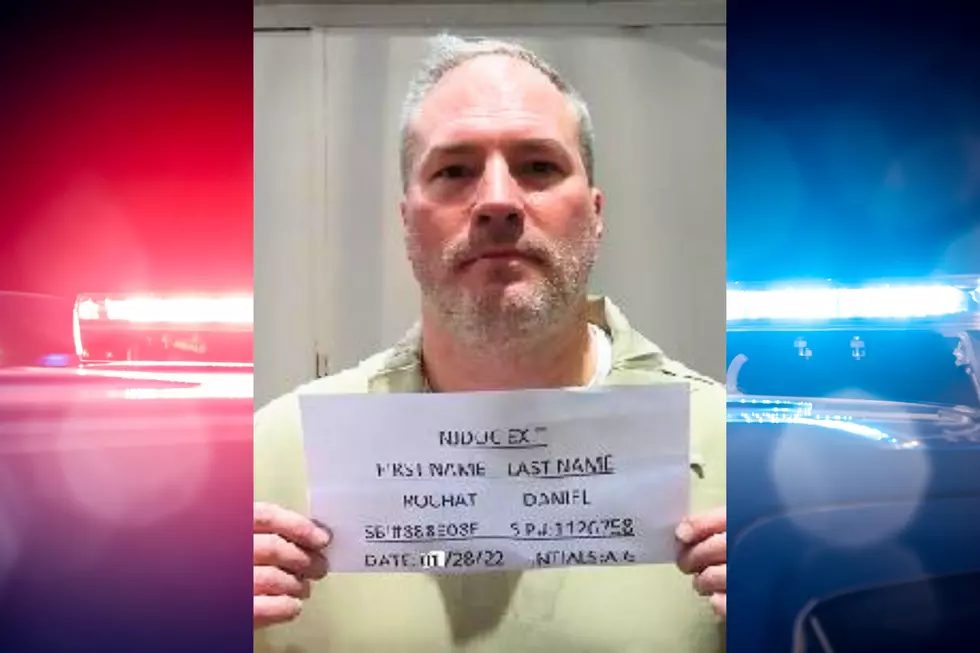
US to Help Nigeria Find Kidnapped Girls
The White House says a U.S. team will head to Nigeria as soon as possible to aid in the search for nearly 300 teenage girls abducted from their school more than three weeks ago.
Spokesman Jay Carney says Secretary of State John Kerry reiterated the offer during a conversation Tuesday with Nigerian President Goodluck Jonathan.
Carney says "time is of the essence." He urged the Nigerian government to ensure that it is using all available resources to ensure the safe return of the girls.
Carney says the U.S. team would include military and law enforcement personnel capable of sharing with the Nigerians expertise in intelligence, investigations, hostage negotiating and victim assistance.
President Barack Obama and Kerry were to discuss the issue at a White House meeting Tuesday afternoon.
The plight of the 276 girls - and the failure of Nigeria's military to find them - has drawn international attention to an escalating Islamic extremist insurrection that has killed more than 1,500 so far this year. Boko Haram, the name means "Western education is sinful," has claimed responsibility for the mass kidnapping and threatened to sell the girls.
The 16-year-old was among about 50 students who escaped on that fateful day, and she spoke for the first time in a telephone interview with The Associated Press.
The Chibok girls school is in the remote and sparsely populated northeast region of Nigeria, a country of 170 million with a growing chasm between a north dominated by Muslims and a south by Christians. Like all schools in Borno state, Chibok had been closed because of Boko Haram's increasingly deadly attacks. But it reopened to allow final-year students to take exams.
At about 11 p.m. on April 14, a local government official, Bana Lawal, received a warning via cell phone. He was told that about 200 heavily armed militants in 20 pickup trucks and more than 30 motorcycles were headed toward his town.
Lawal alerted the 15 soldiers guarding Chibok, he said. The soldiers sent an SOS to the nearest barracks, about 30 miles (48 kilometers) away, an hour's drive on a dirt road.
No help arrived.
When the militants showed up two hours later, the soldiers fought valiantly, Lawal said, and held off the insurgents for an hour and a half, desperately waiting for reinforcements. One was killed. They ran out of ammunition and fled.
Then the extremists went to the boarding school. They set the school ablaze and herded the girls onto the trucks.
The trucks drove through three villages when the fighters' vehicle following them broke down. That's when the girl and her friend jumped out and hid in the bush.
A few other girls clung to low-hanging branches and waited until the vehicles passed.
The day after, the Defense Ministry put out a statement quoting the school principal, saying soldiers had rescued all but eight of the girls. When the principal denied it, the ministry retracted its statement.
With confidence in the military eroded, Chibok residents pooled their money, bought fuel for motorcycles and headed into the dangerous Sambisa Forest which is known to shelter extremists.
An old man herding cattle at a fork in the road warned them that they were close to the kidnappers but that they and their daughters could be killed if they confronted the militants.
The searchers returned to Chibok and appealed to the few soldiers there to accompany them into the forest but the military men refused, said one of the parents, Mutah Buba.
The military says it is diligently searching for the girls, with extensive aerial surveillance.
Parents of the girls are frantic. Through sobs and jagged gasps for air, the mother of a missing 15-year-old said she had lost confidence in the authorities.
"I am so very sad because the government of Nigeria did not take care of our children and does not now care about our children," said the mother, who spoke on condition of anonymity to protect her daughter. "All we have left is to pray to God to help them and help us."
Abubakar Shekau claimed responsibility for the April 15 mass abduction, warning that his group plans to attack more schools and abduct more girls.
"I abducted your girls," said the leader of Boko Haram, which means "Western education is sinful."
He described the girls as "slaves" and said, "By Allah, I will sell them in the marketplace." The hourlong video starts with fighters lifting automatic rifles and shooting in the air as they chant "Allahu akbar!" or "God is great."
It was unclear if the video was made before or after reports emerged last week that some of the girls have been forced to marry their abductors - who paid a nominal bride price of $12 - and that others have been carried into neighboring Cameroon and Chad. Those reports could not be verified.
In the video, Shekau also said the students "will remain slaves with us." That appears a reference to the ancient jihadi custom of enslaving women captured in a holy war, who then can be used for sex.
"They are slaves and I will sell them because I have the market to sell them," he said, speaking in the Hausa language of northern Nigeria.
The video was reviewed by The Associated Press, and both the face and the voice of the leader of Boko Haram were recognizable.
Shekau brushed off warnings that the abductions could be an international crime, saying in English, as if to reach his accusers in the international community: "What do you know about human rights? You're just claiming human rights (abuses), but you don't know what it is."
An intermediary who has said Boko Haram is ready to negotiate ransoms for the girls also said two of the girls have died of snakebite and about 20 are ill. He said Christians among the girls have been forced to convert to Islam. The man, an Islamic scholar, spoke on condition of anonymity because his position is sensitive.
Nigeria's police have said more than 300 girls were abducted. Of that number, 276 remain in captivity and 53 escaped.
The mass abduction and the military's failure to rescue the girls and young women have ignited national outrage with demonstrations in major cities. Protesters accused President Goodluck Jonathan of insensitivity to the girls' plight.
An organizer of a demonstration said Monday that Jonathan's wife, Patience, ordered the arrests of two protest leaders, accused them of belonging to Boko Haram and expressed doubts there was any kidnapping.
It was unclear what authority Patience Jonathan would have to give such orders, since there is no office of first lady in the Nigerian constitution.
Ayo Adewuyi, spokesman for the first lady, said he was unaware of any arrests. "The first lady did not order the arrest of anybody, and I'm sure of that," he told the AP.
But Saratu Angus Ndirpaya of Chibok town said State Security Service agents drove her and protest leader Naomi Mutah Nyadar to a police station Monday after an all-night meeting at the presidential villa in Abuja, the capital. She said police immediately released her but that Nyadar remains in detention.
By Monday afternoon, police said Nyadar had been returned home. A statement denied she was detained, saying she was "invited ... (to) an interactive and fact-finding interview. "
Ndirpaya said Patience Jonathan accused them of fabricating the abductions. "She told so many lies, that we just wanted the government of Nigeria to have a bad name, that we did not want to support her husband's rule," she said in a telephone interview with the AP.
She said other women at the meeting, allies of Patience Jonathan including officials of the government and the ruling party, cheered and chanted "yes, yes," when the first lady accused them of belonging to Boko Haram. "They said we are Boko Haram, and that Mrs. Nyadar is a member of Boko Haram."
In a report on the meeting, Daily Trust newspaper quoted Patience Jonathan as ordering all Nigerian women to stop protesting, and warning that "should anything happen to them during protests, they should blame themselves."
On Sunday night, President Jonathan said his administration was doing everything possible. On Friday he created a presidential committee to go to the affected Borno state to work with the community on a strategy to free the girls.
More From New Jersey 101.5 FM









